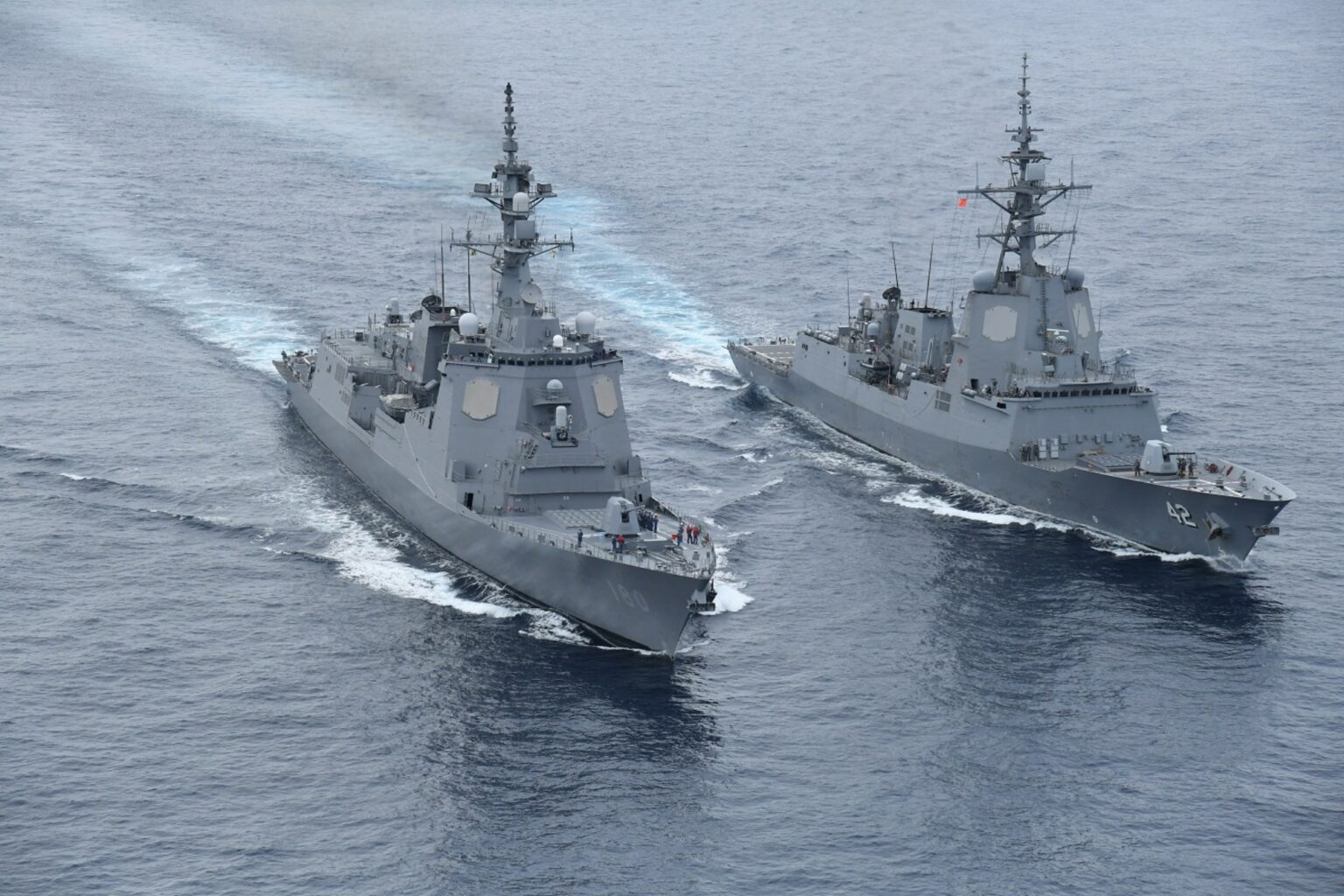Australia and Japan—both United States allies in the Indo-Pacific region—held a joint military exercise in the East China Sea, where China has conducted controversial activities.
Newsweek has contacted the Chinese defense and foreign ministries for comment by email.
Why It Matters
Both Canberra and Tokyo are members of the U.S.-led strategic alignment known as the Quadrilateral Security Dialogue (Quad), which coordinates on regional security to counter China. Beijing has criticized the informal grouping, accusing it of fueling regional tensions.
In the East China Sea, China has maintained a Coast Guard presence near a disputed islet group administered by Japan. Tokyo has also lodged protests over a suspected Chinese fossil-fuel facility in the area, claiming it violates a bilateral agreement on gas field development.
What To Know
The Japan Maritime Self-Defense Force announced on Tuesday that its destroyer JS Haguro conducted a bilateral exercise with the Australian destroyer HMAS Sydney in the East China Sea on Sunday, reinforcing their cooperation to promote a free and open Indo-Pacific region.
Australia is Japan’s “special strategic partner,” the Japan Maritime Self-Defense Force said, highlighting their shared universal values and strategic security interests. It added that it will deepen cooperation with the Royal Australian Navy to promote peace, security, and stability.
Two days after the drill, the Australian warship made a port call at Japan’s Yokosuka naval base, according to photos shared by a ship spotter. The vessel visited the base—located near Tokyo—for replenishment and is scheduled to depart on June 14, local media reported.
The Australian Defense Force said the Sydney is on a three-month-long mission—Regional Presence Deployment 25-2—in the Indo-Pacific region, demonstrating the South Pacific country’s “ongoing commitment to supporting regional security and stability.”
カンガルーの国からホバート級駆逐艦「シドニー」が横須賀に寄港しました⚓️
艦橋のカンガルーマークが可愛いイージス艦です🦘Welcome to Yokosuka! UW2 🇦🇺🤝🇯🇵🎉#AusNavy
🇦🇺【#シドニー (HMAS Sydney, DDG 42)】2025/06/03📸 pic.twitter.com/pVCH6GIp2O— ⚓妖の類📷 (@AyakashiKamo) June 3, 2025
During the deployment, which is scheduled to conclude next month, the Australian warship monitored North Korea’s illicit maritime activities—banned under United Nations Security Council resolutions—in waters around Japan last month, the Japanese Foreign Ministry said.
The Australian Defense Force said the United Nations sanctions limit North Korea’s imports of refined petroleum and crude oil, as well as its exports of coal, adding that they support the goal of achieving North Korea’s “complete, verifiable, and irreversible denuclearization.”
What People Are Saying
The Japan Maritime Self-Defense Force said on Tuesday: “The Self Defense Fleet maintains readiness and contributes to the peace and stability of the Indo-Pacific region, not only for the defense of Japan but also for the realization of a ‘Free and Open Indo-Pacific’ in cooperation with allied and like-minded navies.”
The Australian Defense Force said on May 1: “Australia and its partners share a commitment to upholding the right to freedom of navigation and overflight, other lawful uses of the sea and international airspace, and other maritime rights under international law, particularly in the United Nations Convention on the Law of the Sea.”
What Happens Next
It remains to be seen how China will respond to the Australian military presence in the East China Sea. The development comes after the Chinese navy circumnavigated Australia.
Read the full article here

